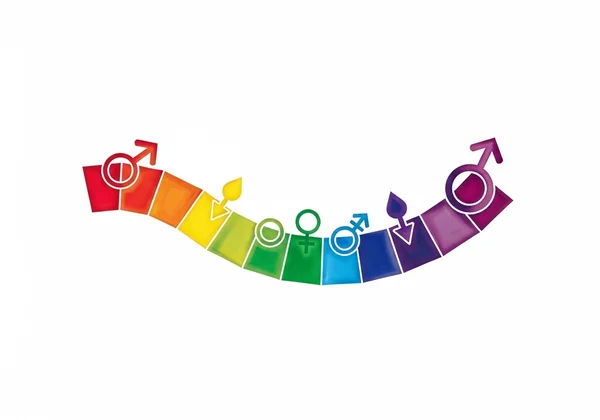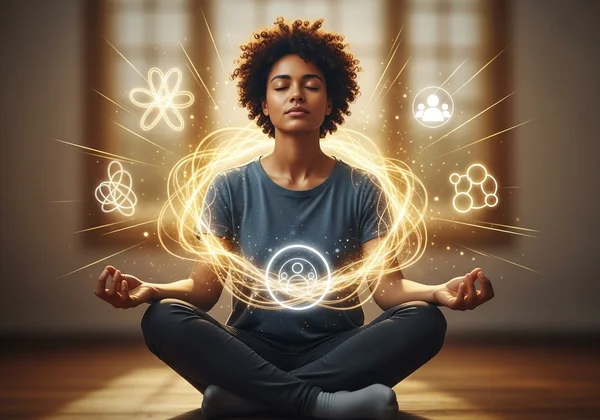Is Sexuality Fluid? Explore Your Evolving Attraction
July 13, 2025 | By Riley Foster
Have you ever felt your attractions shift, making you wonder, "Is my sexuality changing?" You're certainly not alone in this profound journey of self-discovery. Many individuals experience a dynamic and evolving path in understanding their desires. This guide will delve into the concept of sexual fluidity, normalize the idea that sexuality isn't always fixed, and provide a supportive framework for understanding your unique journey. Exploring your sexual orientation can be a personal and enriching experience, and tools like a free online sexual orientation test can offer valuable insights along the way.

Understanding Sexual Fluidity: What Does It Mean?
The term sexual fluidity refers to the capacity for an individual’s sexual attraction to change over time, regardless of their previous self-identification. It suggests that attraction isn't necessarily a rigid, unchanging characteristic, but rather something that can evolve throughout a person's life. This concept recognizes the rich diversity of human experience beyond static labels.
Is My Sexuality Really Changing? Normalizing Dynamic Feelings
For many, discovering a changing sexuality can bring feelings of confusion, excitement, or even anxiety. It’s important to understand that experiencing shifts in attraction is a perfectly normal aspect of human development and self-discovery. These shifts can occur at any age or stage of life, influenced by new experiences, relationships, and deeper self-awareness. Your feelings are valid, and acknowledging them is a brave first step.
Fluidity vs. Bisexuality: Clarifying the Nuances
It's common to confuse sexual fluidity with bisexuality, but there's a key distinction. Bisexuality describes attraction to more than one gender, implying an attraction to both male and female genders. While a bisexual person may also experience fluidity within their attractions, fluidity specifically refers to the change or movement in attraction over time, regardless of the initial orientation or the labels used. Someone who previously identified as heterosexual might experience fluidity and later find themselves attracted to the same gender, or vice versa, or discover a broader sexuality spectrum they hadn't considered.
Navigating the Sexuality Spectrum: Beyond Fixed Labels
Understanding that sexuality exists on a sexuality spectrum can be incredibly liberating. It moves beyond a simple binary of "gay" or "straight" to embrace the vast and varied landscape of human attraction. This perspective encourages a more nuanced self-understanding and reduces the pressure to fit into predetermined boxes.
The Kinsey Scale & Beyond: Visualizing Diversity in Attraction
The Kinsey Scale is a well-known example of visualizing the diversity in attraction evolution. Developed by Alfred Kinsey in the mid-20th century, it proposes a continuum from exclusively heterosexual (0) to exclusively homosexual (6), with various degrees of bisexuality in between. While not without its limitations, the Kinsey Scale was groundbreaking in illustrating that sexual orientation isn't just an "either/or" proposition. It helps us see that people can fall anywhere along this spectrum, and even move along it over time. Modern understandings often expand on this, recognizing attraction as multi-faceted, including romantic, emotional, and sexual dimensions.

Why "No Label" is a Valid Identity Too
In the journey of questioning identity, some individuals find that no single label fully captures their experience. Choosing "no label" is a perfectly valid and empowering choice. It allows for continuous self-exploration and acknowledges that identity can be deeply personal and ever-evolving, free from external expectations or rigid classifications. For some, the act of not labeling provides the ultimate freedom in expressing their attraction evolution. If you’re questioning, consider exploring a gay quiz online to help clarify your feelings.
Why Does Sexuality Evolve? Exploring Attraction's Journey
The reasons behind attraction's journey and why sexuality might evolve are complex and unique to each individual. It's truly remarkable how personal experiences, relationships, and self-discovery can shape our attractions over time.
Life Stages & Self-Discovery: Factors Influencing Your Path
Our lives are a series of life stages and self-discovery, and our understanding of self, including our sexuality, often grows with us. What attracts us in our teenage years might shift as we enter adulthood, build different relationships, or simply gain more life experience. Personal growth, emotional maturity, and encountering new social environments can all play a role in revealing previously unacknowledged attractions or preferences. This journey simply shows how wonderfully dynamic and adaptive we are as humans.
The Role of Experience in Understanding Your Desire
Lived experience plays a significant role in understanding your desire. Sometimes, attractions become clear only after encountering specific individuals, forming deep emotional connections, or having new physical experiences. These moments can illuminate facets of your sexual fluidity that were previously unknown or unacknowledged. Self-reflection and openness to new experiences are crucial for this journey. Engaging with resources like an online gay test can be a safe way to process these evolving feelings.
Embracing Your Questioning Identity: A Path to Empowerment
Embracing a questioning identity is a powerful act of self-acceptance. It means giving yourself permission to explore, to not have all the answers right now, and to trust your own evolving process. This path can lead to a deeper, more authentic understanding of who you are and what you desire.
Finding Supportive Communities and Resources
Navigating a changing sexuality can feel isolating, but remember that you are part of a vast and diverse community. Seeking out supportive communities and resources is vital for mental health and well-being. Online forums, local LGBTQ+ centers, and peer support groups can provide a sense of belonging and validation. Reputable organizations like The Trevor Project and PFLAG offer invaluable resources and guidance. Taking a moment to reflect with a confidential tool like the LGBTQ+ orientation quiz can be a great starting point before seeking community connections.

Practicing Self-Compassion on Your Unique Journey
As you explore your attraction evolution, remember to practice self-compassion. This journey is yours alone, and there's no right or wrong way to experience it. Be patient with yourself, acknowledge your feelings without judgment, and celebrate every step of your self-discovery. It's okay to change your mind, to explore different labels, or to choose no label at all. The goal is to live authentically and joyfully.
Your Evolving Path: Embracing Your Authentic Truth
The concept of sexual fluidity offers a beautiful perspective: that our capacity for love and attraction is vast, complex, and potentially ever-changing. Whether you're just starting to question your sexuality or have been exploring it for years, embracing the possibility of an evolving attraction can lead to a more authentic and fulfilling life. Your journey is valid, unique, and deeply personal.
Ready to take a step further in understanding your unique sexual orientation? Our free, private, and unbiased gay test is designed as a tool for self-reflection. It offers initial results and an optional AI-powered personalized insights report to help you explore your feelings more deeply. Discover your path today.

Frequently Asked Questions About Sexual Fluidity
Can my sexual orientation really change over time?
Yes, for many people, sexual orientation can indeed be fluid and evolve over a lifetime. This doesn't mean it's a choice or that it's "not real," but rather that attractions can shift or deepen as you gain new experiences and a greater understanding of yourself. It's a natural part of human diversity.
Is it normal to question my sexuality at my age?
Absolutely. It is completely normal to question your sexuality at any age, whether you are a teenager, in your twenties, or even later in life. Self-discovery is a lifelong process, and it's never too late to explore and understand your authentic feelings and attractions. Many people explore these feelings later in life.
How do I know if my feelings are truly "fluid" or just confusion?
It can be challenging to differentiate between genuine sexual fluidity and temporary confusion, especially when you are just beginning to explore your attractions. Often, confusion stems from a lack of information or societal pressures. Fluidity, however, is a deeper, often persistent pattern of changing attractions. Taking time for self-reflection and perhaps a confidential tool like an online sexual orientation quiz can help you clarify these feelings.
Does exploring fluidity mean I'm gay or bisexual?
Exploring sexual fluidity does not automatically mean you are gay or bisexual. It simply means you are open to the possibility that your attractions may not fit a rigid category. You might find you are attracted to multiple genders (like bisexual or pansexual), or you might realize your attractions have shifted in a different direction. The journey is about understanding your unique pattern of attraction.
Where can I get more personalized insights on my journey?
For more personalized insights into your attraction evolution and sexual orientation journey, you can take our free online quiz. Our free online quiz provides a safe and confidential space for self-reflection, offering initial results and an optional AI-powered "exploration report" to help you understand your feelings more deeply. Start your exploration now.
Disclaimer: This article provides general information and is intended for self-reflection and educational purposes only. It is not a substitute for professional psychological advice or therapy. If you are experiencing distress or need support, please seek help from a qualified mental health professional or utilize crisis intervention resources such as The Trevor Project or a local LGBTQ+ support center.